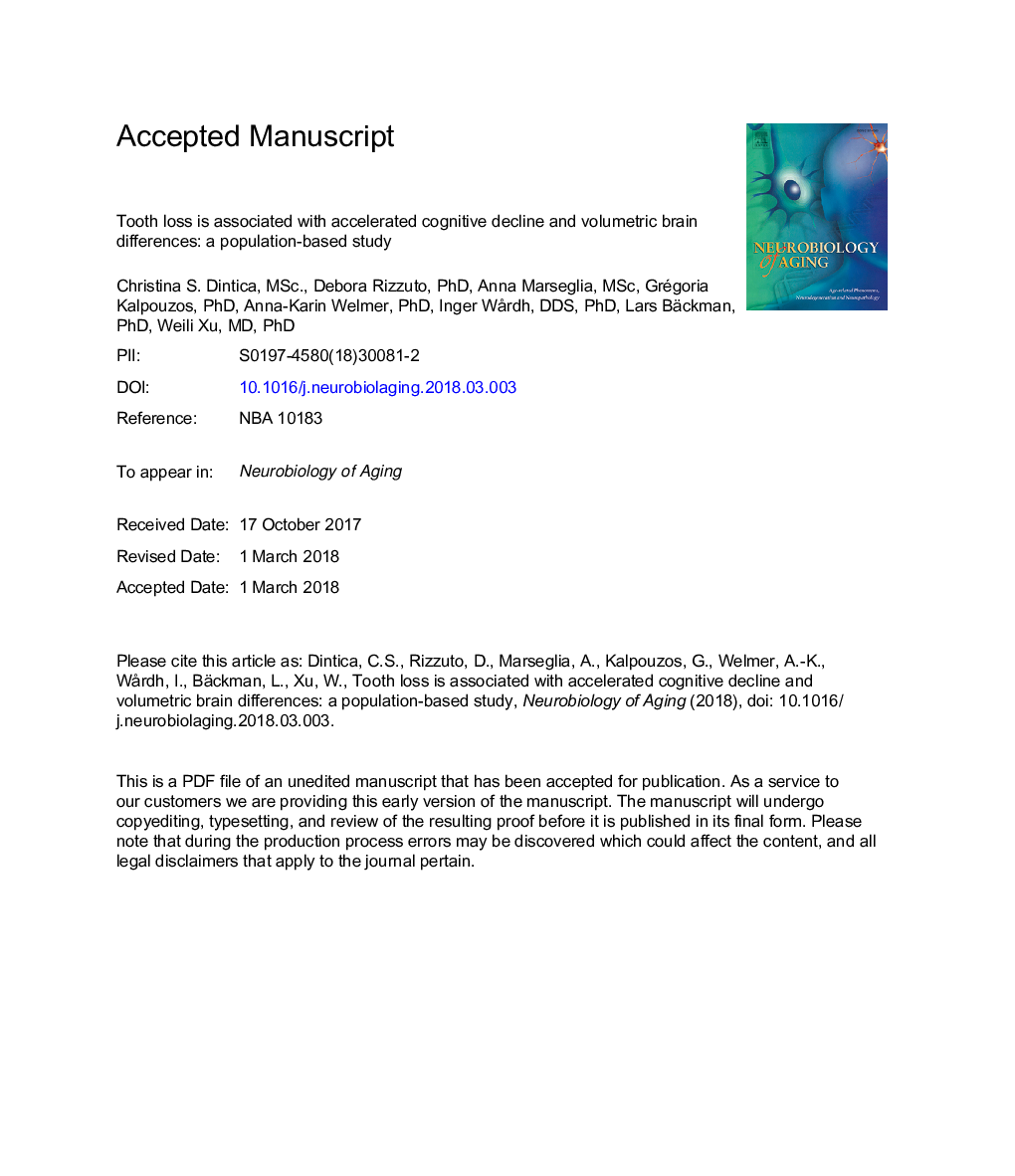| کد مقاله | کد نشریه | سال انتشار | مقاله انگلیسی | نسخه تمام متن |
|---|---|---|---|---|
| 6802899 | 1433517 | 2018 | 34 صفحه PDF | دانلود رایگان |
عنوان انگلیسی مقاله ISI
Tooth loss is associated with accelerated cognitive decline and volumetric brain differences: a population-based study
ترجمه فارسی عنوان
از دست دادن دندان با کاهش شکاف شناختی و اختلاف مغناطیسی مغز مرتبط است: یک مطالعه مبتنی بر جمعیت
دانلود مقاله + سفارش ترجمه
دانلود مقاله ISI انگلیسی
رایگان برای ایرانیان
کلمات کلیدی
مطالعه کوهورت، تصویر برداری عصبی، از دست دادن دندان، پیری شناختی، ماده خاکستری،
موضوعات مرتبط
علوم زیستی و بیوفناوری
بیوشیمی، ژنتیک و زیست شناسی مولکولی
سالمندی
چکیده انگلیسی
Tooth loss has been related to cognitive impairment; however, its relation to structural brain differences in humans is unknown. Dementia-free participants (n = 2715) of age â¥60 years were followed up for up to 9 years. A subsample (n = 394) underwent magnetic resonance imaging at baseline. Information on tooth loss was collected at baseline, and cognitive function was assessed using the Mini-Mental State Examination at baseline and at follow-ups. Data were analyzed using linear mixed effects models and linear regression models. At baseline, 404 (14.9%) participants had partial tooth loss, and 206 (7.6%) had complete tooth loss. Tooth loss was significantly associated with a steeper cognitive decline (β: â0.18, 95% confidence interval [CI]: â0.24 to â0.11) and remained significant after adjusting for or stratifying by potential confounders. In cross-sectional analyses, persons with complete or partial tooth loss had significantly lower total brain volume (β: â28.89, 95% CI: â49.33 to â8.45) and gray matter volume (β: â22.60, 95% CI: â38.26 to â6.94). Thus, tooth loss may be a risk factor for accelerated cognitive aging.
ناشر
Database: Elsevier - ScienceDirect (ساینس دایرکت)
Journal: Neurobiology of Aging - Volume 67, July 2018, Pages 23-30
Journal: Neurobiology of Aging - Volume 67, July 2018, Pages 23-30
نویسندگان
Christina S. Dintica, Debora Rizzuto, Anna Marseglia, Grégoria Kalpouzos, Anna-Karin Welmer, Inger WÃ¥rdh, Lars Bäckman, Weili Xu,
